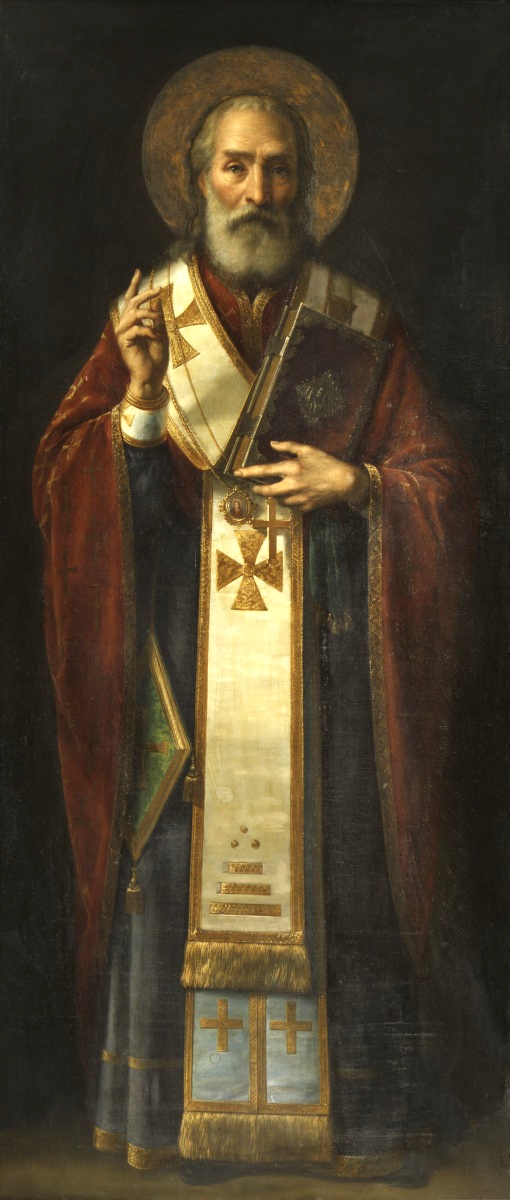Of the books in his lesser-known Space Trilogy, C.S. Lewis’ Perelandra is arguably the best. Taking place almost exclusively on the planet Venus, the character of Ransom explores not just a world untouched by sin but the struggle with sin itself. One of the passages I find most affecting has him reflecting on the proper meaning and end of appetites. I’ve included the passage in its entirety at the end of this post, but its final sentence has always stayed with me: “But for whatever cause, it appeared to him better not to taste again. Perhaps the experience had been so complete that repetition would be a vulgarity—like asking to hear the same symphony twice in a day.”1
Profaning something special is what Ransom is rejecting here, and we are invited to do the same. But it doesn’t take a trip to another planet to see how often we make vulgar (ie, ‘common’)2 what ought to be held apart for a special moment or purpose – it is a habit that is so engrained in us that we are often blind to how regularly and unwittingly we do just that. When our eyes are opened to see others or ourselves making vulgar something that ought not to be common, we react with disgust and repulsion.
In contrast is the idea of the Holy making Itself common – a reality we will celebrate in the mystery of the Nativity of Christ. While our initial reaction may still be rejection, the disgust and repulsion comes from within. Despite the generous nature of the gift, we recoil at the collision of holiness with our brokenness: ‘I’m not worthy of such an extraordinary gift!’
Presumption and despair
One of the more eyebrow-raising lines of Jesus is found in Mark 3:28-29 : “Amen, I say to you, all sins and all blasphemies that people utter will be forgiven them. But whoever blasphemes against the holy Spirit will never have forgiveness, but is guilty of an everlasting sin.” Christians and non-Christians alike ask, quite reasonably!, what this unforgivable sin might be, this blasphemy against the Holy Spirit. How can it be that there is any sin that can not be forgiven by the Lord?
The best explanation I have heard rests on the Lord’s great respect for our free will. Though God has the power to impose Himself on us, He will not do so – and that includes forgiveness. If we refuse to ask for his help – whether out of presumption (‘I don’t need His help’, ‘I can claim His gifts without even asking Him’) or despair (‘He’ll never help me, so I won’t bother asking’) – He will honor that refusal. This blasphemy against the Holy Spirit is unforgiveable because we make ourselves unforgiveable by refusing forgiveness.
Incidentally, this is one of the reasons why the Church insists on individual confession, rather than the oft-abused general absolution (which is only to be used in immediate danger of death). The Lord gives generously and graciously, but never in a way that would cheapen our relationship with Him. An apology made without specifics, ownership, or expression of sorrow is no apology at all! On the other end, a statement of forgiveness is means nothing if it is simply a dismissal as unimportant the offenses it addresses. Confession allows us – as best as we can – to make a sincere apology, while opening ourselves to the fullness of God’s forgiveness.
Humble Divinity
The recent publication of the Dicastary for the Doctrine of the Faith’s declaration Fiducia Supplicans has given members of the Church reason to revisit the meaning and end of blessings. In giving authority to the Apostles – passed on through the generations to clerics today – Christ has given extraordinary power & responsibility: to call and have God answer. When we call, He shows up! What was once unique to the Last Supper has become the weekly or even daily experience of Catholics throughout the world.
That there is fear that this declaration could be used to provide cheap grace or result in the graces of blessings being profaned is not entirely unreasonable. And sadly, we have no shortage of examples – especially recently – of clerics and laity all-to-willing to cheapen or profane God’s blessings, using them as they see fit rather than as the Lord and His Church intends.
This danger has not stopped the Lord from entrusting Himself to us. At the words of the priest at Mass, Jesus comes to us with the fragility of bread and wine – a crumb, a single drop contains Christ entire, whole to all that taste. And at the conclusion of Mass, the priest blesses all present – worthy or not – and the Lord responds.
Despite His greatness – or better said, because of His greatness – God humbles Himself such that we may direct Him. What a terrible and awesome gift! We who carry it ought to hold ourselves and be held accountable for how we use it – and so we will surely will, at the end of all things.
Needy humanity
The point of all of this – the point of the declaration, I dare to assert – is that this gift ought to be used to the point of commonality – because God Himself (and not us) has willed it so! Of course we ought to reject profaning blessings by using them in unholy ways or over unholy things. Of course we ought to recoil from cheapening blessings by using them insincerely, carelessly, or spuriously. But we should – we must – put this gift to good and regular use. To reject or recoil from using this gift, especially on behalf of those who most need it most – us sinners! – would be to frustrate the proper meaning and end of blessings: to sanctify us and make us holy.
In our need – and often, hubris – there will be those who will presume to receive God’s blessing without any intention or desire to enter into a relationship with Him, or allow for Him to effect change in their lives. There will be others who feel so hopeless that they won’t dare to approach Him at all. It is the work and role of Christians everywhere to help others freely approach God and worthily receive Him – this is what is at the heart of the great commission. This, too, is part of the point of this.
With regards to the declaration Fiducia Supplicans, there is a key line that punctuates how these blessings might be made common but not cheaply or profanely:
In such cases [the blessing of irregular/same-sex couples], a blessing may be imparted that not only has an ascending value but also involves the invocation of a blessing that descends from God upon those who—recognizing themselves to be destitute and in need of his help—do not claim a legitimation of their own status, but who beg that all that is true, good, and humanly valid in their lives and their relationships be enriched, healed, and elevated by the presence of the Holy Spirit.
Fiducia Supplicans, 31
Responding worthily
Those who recognize their destitution and need for help, who don’t legitimize themselves but beg for all that is good, true, and valid in their lives & relationships to be enriched, healed and elevated – would that ALL of us would so approach blessings from the Lord and His Church! This is no blessing of sin, but rather a blessing against the sin that binds – and surely an occasion to be celebrated.
When humanity turns what is holy into something profane, it is rightly condemned. But when the Sacred chooses to descend, to mysteriously make Himself small, when He makes Himself a commoner for our sake, our response ought to be one of grateful joy and generous sharing. May we make of this a renewed opportunity to encourage each other to receive fully the blessings of the Lord.
- Now he had come to a part of the wood where great globes of yellow fruit hung from the trees–clustered as toy-balloons are clustered on the back of the balloon-man and about the same size. He picked one of them and turned it over and over. The rind was smooth and firm and seemed impossible to tear open. Then by accident one of his fingers punctured it and went through into coldness. After a moment’s hesitation he put the little aperture to his lips. He had meant to extract the smallest, experimental sip, but the first taste put his caution all to flight. It was, of course, a taste, just as his thirst and hunger had been thirst and hunger. But then it was so different from every other taste that it seemed mere pedantry to call it a taste at all. It was like the discovery of a totally new genus of pleasures, something unheard of among men, out of all reckoning, beyond all covenant. For one draught of this on earth wars would be fought and nations betrayed. It could not be classified. He could never tell us, when he came back to the world of men, whether it was sharp or sweet, savoury or voluptuous, creamy or piercing. “Not like that” was all he could ever say to such inquiries. As he let the empty gourd fall from his hand and was about to pluck a second one, it came into his head that he was now neither hungry nor thirsty. And yet to repeat a pleasure so intense and almost so spiritual seemed an obvious thing to do. His reason, or what we commonly take to be reason in our own world, was all in favour of tasting this miracle again; the child-like innocence of fruit, the labours he had undergone, the uncertainty of the future, all seemed to commend the action. Yet something seemed opposed to this “reason.” It is difficult to suppose that this opposition came from desire, for what desire would turn from so much deliciousness? But for whatever cause, it appeared to him better not to taste again. Perhaps the experience had been so complete that repetition would be a vulgarity—like asking to hear the same symphony twice in a day.
– C.S. Lewis, Perelandra (the antepenultimate paragraph of chapter 3) ↩︎ - from the Latin vulgaris, volgaris (common, ordinary) or vulgus, volgus (of the common people) ↩︎

